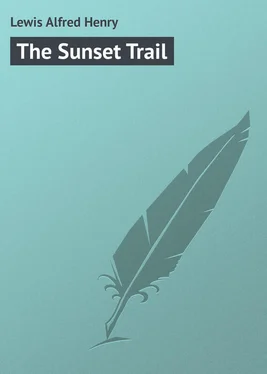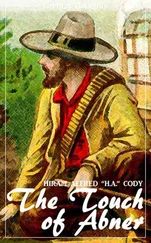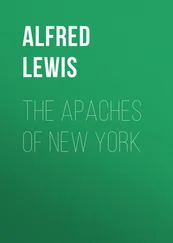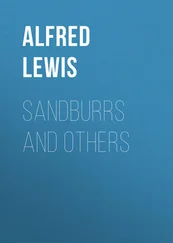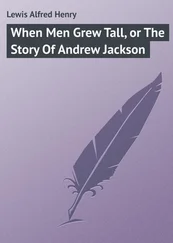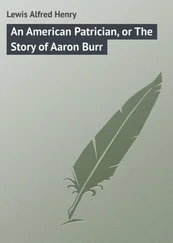Alfred Lewis - The Sunset Trail
Здесь есть возможность читать онлайн «Alfred Lewis - The Sunset Trail» — ознакомительный отрывок электронной книги совершенно бесплатно, а после прочтения отрывка купить полную версию. В некоторых случаях можно слушать аудио, скачать через торрент в формате fb2 и присутствует краткое содержание. Жанр: foreign_prose, foreign_adventure, на английском языке. Описание произведения, (предисловие) а так же отзывы посетителей доступны на портале библиотеки ЛибКат.
- Название:The Sunset Trail
- Автор:
- Жанр:
- Год:неизвестен
- ISBN:нет данных
- Рейтинг книги:5 / 5. Голосов: 1
-
Избранное:Добавить в избранное
- Отзывы:
-
Ваша оценка:
- 100
- 1
- 2
- 3
- 4
- 5
The Sunset Trail: краткое содержание, описание и аннотация
Предлагаем к чтению аннотацию, описание, краткое содержание или предисловие (зависит от того, что написал сам автор книги «The Sunset Trail»). Если вы не нашли необходимую информацию о книге — напишите в комментариях, мы постараемся отыскать её.
The Sunset Trail — читать онлайн ознакомительный отрывок
Ниже представлен текст книги, разбитый по страницам. Система сохранения места последней прочитанной страницы, позволяет с удобством читать онлайн бесплатно книгу «The Sunset Trail», без необходимости каждый раз заново искать на чём Вы остановились. Поставьте закладку, и сможете в любой момент перейти на страницу, на которой закончили чтение.
Интервал:
Закладка:
Cimarron Bill did not have the luck which had attended the gymnastics of Mr. Masterson, and sprained his ankle. Whereupon, Cimarron Bill sat up and called for a glass of liquor, solacing himself the while with evil words. Following the drink, Mr. Stumps negotiated a truce between his two guests, and Mr. Masterson came down and shook Cimarron Bill by the hand. “What I like about you,” said Cimarron Bill, as he met Mr. Masterson’s courtesy halfway, “is your persistency. An’ as you seem sort o’ took with them apartments of mine, on second thought we’ll ockepy ’em in yoonison.”
Mr. Masterson and Cimarron Bill became as Damon and Pythias. In the months that followed they were partners, killing buffaloes and raiding Indians for ponies, share and share alike. Mr. Masterson came finally to know Aunt Nettie. And because Cimarron Bill loved her, he also loved her, and suffered in humble silence from her caustic tongue as did his mate. For was not the fortune of one the fortune of the other? and were they not equal partners in all that came their way?
Cimarron Bill’s most glaring fault was a complete inaptitude for commerce. It was this defect that taught him, while at play in Mr. Webster’s Alamo saloon, to place a value on “queens-up” so far in advance of their merits, that in one disastrous moment he was swept clean of his last dollar and his last pony. For a buffalo hunter thus to be set afoot was a serious blow; more, it smelled of disgrace. Your Western gentleman, dismounted and obliged to a painful pedestrianism, has been ever a symbol of the abject; also his standing is shaken in what social circles he affects. These several truths were abundantly known to Cimarron Bill, and on the morning after his bankruptcy he begged the use of a pony from Mr. Masterson with a purpose of straightening up his prostrate destinies.
“I’ll ride down,” explained Cimarron Bill, easily, “to the divide between Medicine Lodge Creek an’ the Cimarron, an’ the first Cheyenne who comes teeterin’ along on a proper pony ought to fit me out. I won’t be afoot long enough to wear out my moccasins; you can bet a blue stack on that!”
Cimarron Bill’s plan to remount himself was one feasible enough. True, as stated in a previous chapter, there existed an official peace between the Cheyennes and their paleface brothers. Unofficially, it was the quenchless practice of both sides to kill and scalp each other, whenever an opportunity linked with secrecy and safety was presented. It was the pleasure of the Cheyennes to fall upon isolated camps of buffalo hunters and exterminate them; the broad prairies, had they spoken, would have told a hundred such red stories. By way of reprisal, the enterprising paleface wiped out what Cheyennes crossed his path. Moreover, it was the delight of the paleface, when not otherwise engaged, to raid a Cheyenne village, and drive off the ponies. The ponies, saleable as hot cakes, went at thirty dollars the head in Dodge; wherefore the practice, apart from the thrill and joy thereof, was not without its profit. Cimarron Bill, however, did not contemplate a raid; what he aimed at was a single pony, and there were safer, even if more sanguinary methods by which a single pony might be arrived at.
Bear Shield’s band of Cheyennes had pitched their tepees on the Cimarron, thirty miles to the south of Sun City. The region was a fair hunting ground, rife of buffalo. The attraction to Bear Shield’s people, however, was Sun City itself. What was a thirty-mile ride to a Cheyenne, with nothing upon his mind but firewater? The latter refreshment abode privily to his call in Sun City, and he might purchase at the rate of a pint for a buffalo robe. So brisk was trade that every day from one to a dozen Cheyennes, whose hearts were low and thirsty, rode into Sun City, each with a modest pack of robes, to presently ride forth robeless but rapturous.
Southward from Sun City ran the trail for that point on the Cimarron where Bear Shield and his tribesmen, their squaws and pappooses and dogs and ponies, lived and moved and had their aboriginal being. As the trail crossed Medicine Lodge Creek it crowded the base of a thickly wooded knoll, at the back of which a bald precipice fell away for a sheer two hundred feet.
It was the wont of that paleface, who felt pressed upon by the need of a Cheyenne scalp or pony or both, to lie in hopeful ambush on the wooded knoll. He would not grow weary with much watching; his reward was sure to appear within the hour, in the shape of a drunken Cheyenne, reeling in his saddle with the robe-bought hospitality of Sun City fifteen miles away. The sullen Sharp’s would speak, and the bibulous Cheyenne go headlong. Then the paleface who had sniped him would mount his own pony with speed, and round up the riderless pony of that Cheyenne who had been. Once the Cheyenne’s pony was secured, the paleface would scalp and strip his victim; then, using his lariat, he would drag what he didn’t want to the precipice adverted to, and toss it over.
Full two hundred leading citizens of Bear Shield’s village had been blotted out, before the Cheyennes became aware of their fate and the grim manner of it; for the paleface never exposed his ambush by letting any Cheyenne get away. If the census of the Cheyenne party exceeded the count of rifles on the knoll, they were permitted to ride by in innocent drunkenness, unconscious of the death they had grazed. As for what dead Cheyennes went over the cliff, certain coyotes and ravens, educated of a prevailing plenty to haunt the spot, would in an hour remove the last trace of their taking off. Full two hundred Cheyennes, the flower of Bear Shield’s band, were sent to the happy hunting grounds, at the base of the wooded knoll on Medicine Lodge Creek, before their wondering relatives solved the puzzle of their disappearance. Once the gruesome riddle was read, the Cheyennes as a nation painted for war. It was then that Bear Shield drove North like a storm, leaving Sun City a memory, and killing out the last injurious paleface for forty miles around. That, however, is to one side of our narrative, which has to do with Cimarron Bill, about to re-establish himself as a mounted and therefore reputable member of society.
Mr. Masterson sought to dissuade Cimarron Bill from his enterprise. It was not that he objected to the other’s vigorous scheme of gaining a remount; he wasn’t so tenderly given towards Cheyennes as all that. The government, in favor of appearances, might pretend to preserve the Cheyenne; but Mr. Masterson knew that in reality no close season for Cheyennes existed more than it did for gray wolves. But the wooded knoll on Medicine Lodge Creek was distant; to go and come meant days; the profit, one pony, was slight for so much effort and time and travel. Mr. Masterson, in comparison with the investment, pointed out the meagre sort of the reward. Also he offered to give Cimarron Bill a pony.
Mr. Masterson’s arguments availed nothing; Cimarron Bill was in that temper of diligent virtue, common with folk who have just finished a season of idleness and wicked revelry. He declined Mr. Masterson’s pony; he would win a pony for himself.
“No se’f-respectin’ gent,” observed Cimarron Bill, “can accept gifts from another gent. As you sow so shall you reap; havin’ recklessly lost my pony, I must now win out another by froogality an’ honest industry. Besides it ain’t jest the pony; thar’s the skelp – worth twenty-five dollars, it is, at the Dodge Bank. That’s a bet you overlooks. With that pony, an’ them twenty-five dollars for the skelp, I can begin life anoo.”
“Then,” returned Mr. Masterson, disgustedly, “if you’re going to play the fool, and waste five days and ride seventy-five miles and back to get a thirty-dollar pony and a twenty-five-dollar scalp, I might as well be a fool mate to you, and go along.”
Читать дальшеИнтервал:
Закладка:
Похожие книги на «The Sunset Trail»
Представляем Вашему вниманию похожие книги на «The Sunset Trail» списком для выбора. Мы отобрали схожую по названию и смыслу литературу в надежде предоставить читателям больше вариантов отыскать новые, интересные, ещё непрочитанные произведения.
Обсуждение, отзывы о книге «The Sunset Trail» и просто собственные мнения читателей. Оставьте ваши комментарии, напишите, что Вы думаете о произведении, его смысле или главных героях. Укажите что конкретно понравилось, а что нет, и почему Вы так считаете.
